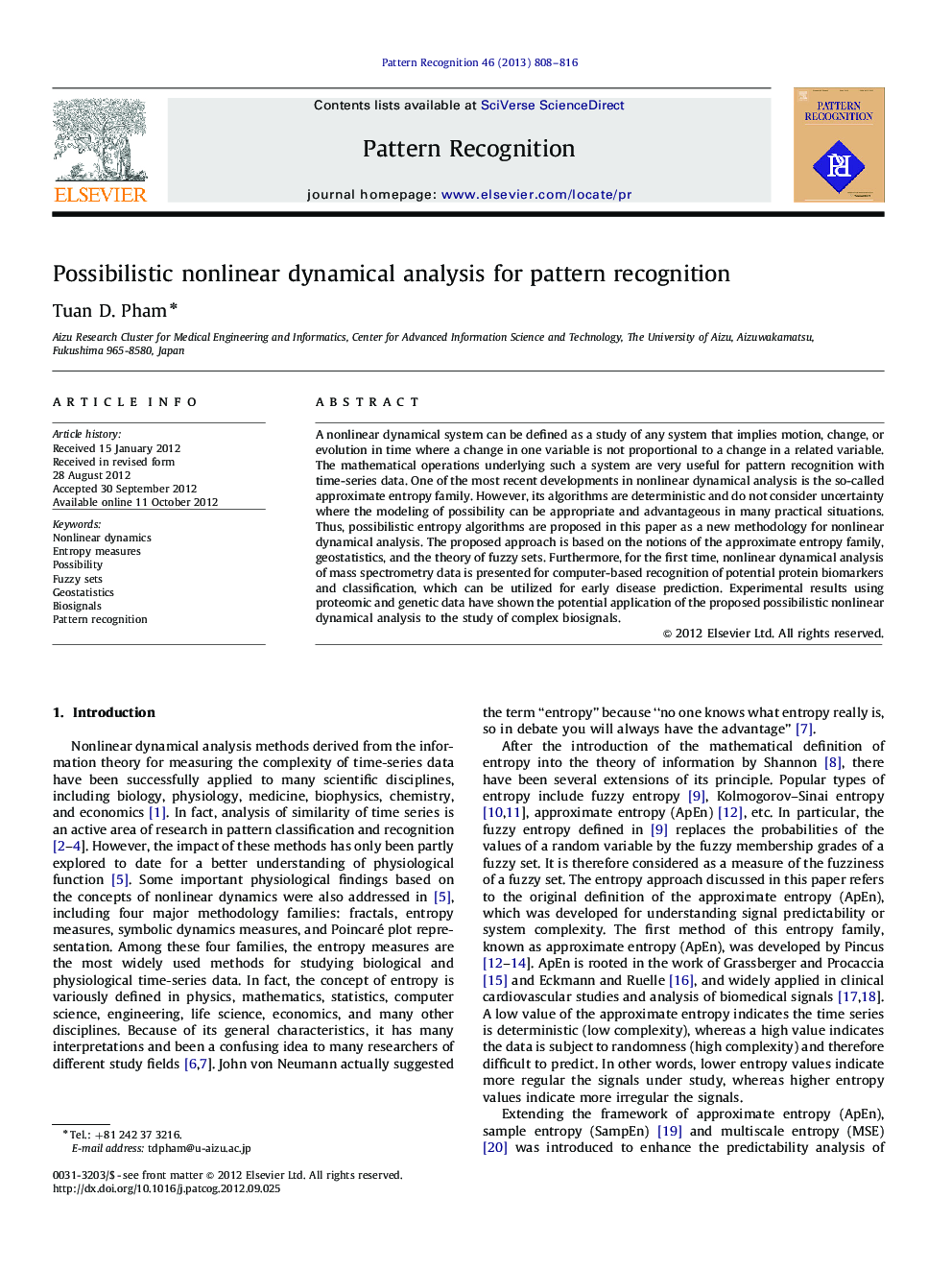| Article ID | Journal | Published Year | Pages | File Type |
|---|---|---|---|---|
| 532287 | Pattern Recognition | 2013 | 9 Pages |
A nonlinear dynamical system can be defined as a study of any system that implies motion, change, or evolution in time where a change in one variable is not proportional to a change in a related variable. The mathematical operations underlying such a system are very useful for pattern recognition with time-series data. One of the most recent developments in nonlinear dynamical analysis is the so-called approximate entropy family. However, its algorithms are deterministic and do not consider uncertainty where the modeling of possibility can be appropriate and advantageous in many practical situations. Thus, possibilistic entropy algorithms are proposed in this paper as a new methodology for nonlinear dynamical analysis. The proposed approach is based on the notions of the approximate entropy family, geostatistics, and the theory of fuzzy sets. Furthermore, for the first time, nonlinear dynamical analysis of mass spectrometry data is presented for computer-based recognition of potential protein biomarkers and classification, which can be utilized for early disease prediction. Experimental results using proteomic and genetic data have shown the potential application of the proposed possibilistic nonlinear dynamical analysis to the study of complex biosignals.
► Nonlinear dynamical analysis is useful for pattern recognition with time-series data. ► Most methods for nonlinear dynamical systems do not consider uncertainty. ► Modeling of possibility can be advantageous to many applications. ► Possibilistic entropy algorithms are proposed as a new methodology for nonlinear dynamical analysis.
